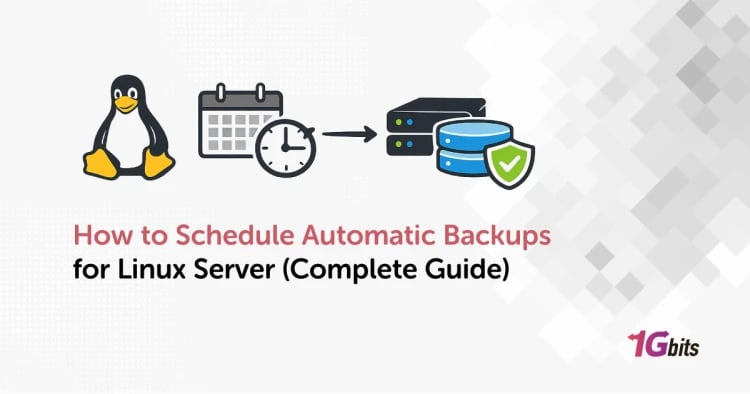A VPS is a great solution if you need more resources and better performance than you typically get with shared hosting. VPS hosting allows you to have a dedicated portion of a powerful server, with dedicated resources and the freedom to configure everything as you wish, without being bothered by other users. With a VPS, you can host sophisticated websites, run your own applications, and set up private networks and more. Let's discover 8 examples of possible VPS use cases.
Common VPS Uses and Applications
VPSs are used in many areas due to their dedicated resources and high configurability. Some common VPS hosting uses include:
1. Web Hosting and E-Commerce
One of the main VPS applications is hosting high-traffic websites and online stores. This type of hosting offers better performance and stability than shared hosting. In addition, you have root access on a VPS; this means you can install your favorite software, such as Nginx, Apache, PHP, or the required database, and configure the server according to your needs. Such freedom of action means that you have no restrictions on the choice of technology and optimization of your website.
For more information on the benefits of VPS for business, I recommend reading the article; Benefits of Using VPS.
2. Software Development and Testing
Developers can set up a VPS to have a production-like environment where they can run and test their code. This reduces the chance of errors before releasing the final version. Each team or developer can have their own VPS, so that there is no interference between projects. For example, you can set up a Git server or a CI/CD server (such as Jenkins or GitLab) on the VPS to automate software testing and building.
3. Gaming Servers and Communication Platforms
Multiplayer online games usually require a central server to host players. Setting up these servers on a VPS can be a good option, as the cost of a powerful VPS is usually lower than that of a dedicated game server. For example, if you are planning to create a Minecraft or CS: GO server for a group of friends, using a VPS will allow you to do this, and also implement mods and chat tools (such as TeamSpeak) on your server.
Looking to host your favorite games with low latency and maximum stability? Our VPS Gaming plans are built for seamless performance. Start your server today!
4. Set up your own VPN connection
With a VPS, you can host your own VPN instead of relying on a third-party service. This gives you complete control over your privacy and security, as well as direct access to the internet without monitoring the websites you visit. This prevents your ISP and unauthorized parties from tracking your activities or viewing your IP address, even if you are on a public network.
Take control of your privacy and security with VPS for VPN. Set up your own private VPN and browse safely without tracking.
5. Remote Desktop
With a VPS, you can set up a Windows server with RDP access so you can connect to its desktop from anywhere in the world at any time. This feature is very useful for remote work teams or people who need to run heavy applications. In fact, using RDP VPS you can create a virtual Windows desktop to use your own software.
Need a reliable Windows desktop you can access anytime, anywhere? With RDP VPS, you can run heavy apps, collaborate remotely, and stay connected with ease.
6. SaaS and Container Hosting
With VPS, you can host web-based services (such as CRM, ERP, or content management platforms) and have full control over them. For example, you can run and manage your containerized applications on a VPS by installing Docker and Kubernetes. This allows you to run your applications in a secure and configurable environment without being dependent on large cloud providers.
Looking for a reliable solution to run your trading platforms smoothly? Check out our Forex VPS for fast, stable, and secure performance.
7. Education and Streaming
VPS is an ideal choice for streaming and managing video content, podcasts, live events, and even online classes. With its powerful infrastructure and stable bandwidth, you can stream smoothly and without interruption and manage your multimedia content easily. This feature ensures that the quality and stability of the service are maintained even when the number of users or viewers increases.
Want a reliable way to stream classes, podcasts, or live events? VPS for streaming ensures stable bandwidth and smooth performance, even as your audience grows.
8. Private Email Server and Messenger
If you care about your cybersecurity and don't want other people to read your emails, we suggest that you go ahead and encrypt and use your private email server. Virtual servers will allow you to set up your own private messenger using programs in addition to setting up a dedicated email server. Private messaging software such as ejabberd will allow you to send and receive your sensitive messages to other people through end-to-end encryption.
VPS benefits by use case
Now that you’re familiar with the main VPS use cases, let’s take a quick comparative look at the key benefits of VPS for each scenario. This table will help you understand exactly what you gain in each VPS application:
|
VPS Use Case |
Key Benefits |
|
Web Hosting & E-Commerce |
Faster page load times, dedicated resources for high traffic, dedicated IP for better SEO and security. |
|
Software Development & Testing |
Isolated, production-like environment; full control to install DevOps tools; fewer errors before final release. |
|
Gaming Servers & Voice Chat |
Lower latency for players, ability to install mods and plugins, and more stable connection than shared hosting. |
|
Remote Desktop (RDP) |
Access your desktop from anywhere, run heavy applications on the server, secure and fast remote connection. |
|
VPN Hosting |
Build a private and secure network, encrypt data transfers, protect privacy on public networks. |
|
SaaS & Container Hosting (Docker/K8s) |
Full control over the environment, scalable application hosting, lower cost compared to a dedicated server. |
|
Streaming Content |
High bandwidth for live streaming, stable performance, reduced buffering for viewers. |
|
Industry-Specific (e.g., Forex) |
High speed and uptime for critical trading operations, flexible scaling during peak loads, advanced security. |
As you can see, each VPS use cases brings its own set of advantages. All you need to do is identify your business needs and pick the right VPS plan to leverage these benefits effectively.
How to Choose the Right VPS for Your Use Case
VPS hosting providers offer a wide range of offerings. So, there are several factors to consider when choosing the ideal VPS solution for your project:
-
CPU and RAM: Heavier projects like game servers, chatbots, and VoIP servers require a lot of processing power.
-
Bandwidth: High-traffic websites with lots of media files require high bandwidth to load pages quickly and consistently.
-
Storage: If you want to launch a large online store or create your own cloud, look for a VPS provider that offers SSD storage with enough space for your files.
-
Operating system: For most websites and web applications, Linux distributions (such as Ubuntu or CentOS) are sufficient. If you need Windows-specific software, go with Windows Server.
-
Upgrades and Scalability: Make sure your VPS provider allows for server resources to be increased so that you can later upgrade the server as your users grow.
-
Support: If you don’t have the technical expertise, it’s best to use a managed VPS or a ready-made control panel (like cPanel or Plesk) to make things easier.
-
Server Location: To reduce latency, choose a server that is close to your main users.
To make an informed choice and find the right VPS for your needs, we recommend checking out our guide What Is VPS.
VPS vs Other Hosting Types
In general, VPS falls between cheap shared hosting and powerful, expensive dedicated servers. A VPS gives you dedicated resources and root-level control (like a dedicated server), but at a fraction of the cost. You can better understand this definition in the table below.
|
Hosting Type |
Typical use cases |
Cost |
Performance & Isolation |
Control & Customization |
Scalability |
Maintenance / Skill required |
|
Shared Hosting |
Small websites |
Lowest |
Shared, variable performance |
Very limited (no root) |
Low |
Minimal(provider-managed) |
|
VPS (Virtual Private Server) |
Growing sites, e-commerce, dev/test |
Moderate |
Dedicated quota, isolated |
Root access, full control |
High (depending on provider) |
Medium (managed/unmanaged option) |
|
Dedicated Server |
High-traffic, large projects |
High |
Entire machine resources |
Complete hardware control |
Add machines to scale |
High (sysadmin required) |
As you can see in the table, VPS offers a great balance of the affordability of shared hosting and the performance of dedicated hosting.
Migrating to a VPS
A common question is: “I’m on shared hosting now, how can I migrate to a VPS?” It may seem complicated at first, but if you go step by step, the process becomes simple and hassle-free.
-
Choosing the right VPS plan: First, review your current resource usage such as CPU, RAM, storage, and bandwidth, and choose a plan that slightly exceeds your current needs.
-
Setting up your VPS environment: Install your desired operating system and configure the required web stack, such as Apache, Nginx, PHP, and MySQL.
-
secure your server: secure your server, including enabling a firewall, using SSH keys, and installing the latest updates.
-
Transferring files and databases: Transfer files with FTP, SCP, or migration tools, and export and import databases, such as mysqldump for MySQL.
-
Test the site on the VPS: Test the site with the server IP or a temporary domain to make sure that the page loads properly and there are no broken links.
-
Update DNS: Point your domain to the VPS IP, either by changing the nameservers or the A record.
-
Monitor after migration: After the transfer, monitor site performance, error logs, and server security, and increase your VPS resources if necessary.
If you don’t have enough experience managing servers, at 1Gbits we offer a managed migration service to move your site to a VPS with minimal disruption, so you can buy VPS with confidence.
When is VPS not suitable?
Now you know when to use a VPS, but sometimes a VPS is not the best option. For example, if your website or application has extremely high traffic or requires special hardware such as GPUs and disks with very high I/O speeds, a dedicated server or specialized cloud services are a better choice.
Similarly, for sending bulk or millions of emails, a VPS is not a good option because it becomes complicated to manage and prevent spam; in these situations, dedicated email services are more reliable.
Common Challenges and Solutions
Managing a VPS can be challenging, but with the right solutions, you can overcome them:
Technical knowledge required
Managing a server requires technical knowledge, such as installing software and keeping the operating system up to date. If you’re a beginner, you can use a managed VPS or a graphical control panel.
Updates and security
You’re responsible for keeping your server secure and up-to-date. To prevent intrusions, be sure to set up a firewall, secure SSH access, and update your software regularly.
Higher cost than shared hosting
VPS is usually more expensive than shared hosting, but it’s worth it in terms of performance, control, and security. You can start with a small plan and upgrade your server as needed.
Backup
You need a way to fall back on in case of hardware failure or other issues. It’s best to use automated backup methods or your provider’s support services.
With these tips in mind, VPS becomes one of the most powerful hosting tools you can use to cover almost any hosting need.
Get the Most Out of VPS
As you can see, VPS is a flexible and powerful solution for a variety of purposes and contexts. With VPS, you can increase your website’s performance, have more room to grow, and have complete control over your server’s security. If you’re ready to get your own virtual server, you can visit the Buy VPS page and choose the plan that’s right for you.




![What Is Cold Data Storage? ❄️ [2026 Guide] What Is Cold Data Storage? ❄️ [2026 Guide]](https://1gbits.com/cdn-cgi/image//https://s3.1gbits.com/blog/2026/02/what-is-cold-data-storage-750xAuto.webp)
![What Is Virtual Desktop Infrastructure? 🖥️ [VDI Explained] What Is Virtual Desktop Infrastructure? 🖥️ [VDI Explained]](https://1gbits.com/cdn-cgi/image//https://s3.1gbits.com/blog/2026/02/what-is-virtual-desktop-infrastructure-vdi-750xAuto.webp)

![How to Change VPS Password 🔑 [Windows & Linux] How to Change VPS Password 🔑 [Windows & Linux]](https://1gbits.com/cdn-cgi/image//https://s3.1gbits.com/blog/2025/12/how-to-change-your-vps-password-750xAuto.webp)


